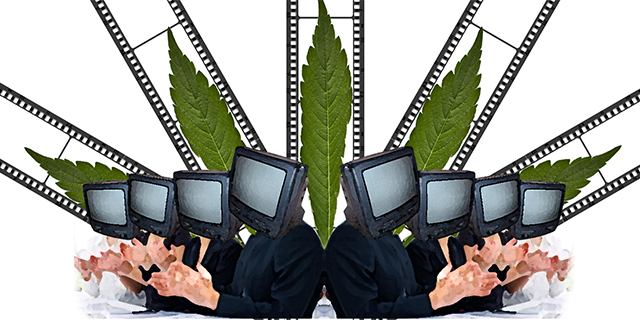In 1936, a movie titled Tell Your Children was produced by a church group to warn parents about the dangers of marijuana use. This film was the epitome of everything that the prohibition movement, lead by Harry Anslinger, claimed cannabis to be. It depicted young adults as pot-crazed lunatics who turned to sex, violence, crime and murder while under the influence. Sometime after the film’s release, it was purchased, edited and redistributed by exploitation filmmaker Dwain Esper underthe name Reefer Madness. Though this film has become a cult classic over the past century and is synonymous with the cannabis culture, one should always remember that the original intent of this motion picture was to serve as a PSA against cannabis and its use.
If you haven’t seen Reefer Madness, Marihuana, or Assassin of Youth, I recommend watching one of them, as they laid the foundation to every relevant argument against the legalization of cannabis in the US. I use the term “relevant” in a very lose manner, as the only relevance to these arguments are that they are the arguments used by those who support prohibition. The truth, however, is that these arguments are all grossly entrenched in the morals and values associated with a society that held absolutely no regard for individual rights, liberties and/or equality. Though the movies themselves may be laughable to a modern society, the true comedy lies in the fact that we have yet to rectify the injustices caused by such archaic views, allowing ignorance to dictate cannabis legislation.
Fortunately, we now have our own propaganda, founded on science and research, that can be used to reverse the stigma associated with cannabis. Though there are a number of publications that reference this topic (most notable, the small independent 13 Folds), there are also some great documentaries. Among these films are Hemp for Victory (an American-made film about the various uses of hemp and its importance to the WW2 war effort), High: The True Tale of American Marijuana (2008), The Union: the Business Behind Getting High (2007), and Dr. Sanjay Gupta’s Weed (2013). The most interesting of the cannabis related-documentaries that I have seen to date, however, is Brett Harvey’s The Culture High, released earlier this year.
The Culture High tackles marijuana prohibition head on, touching all aspects of the debate with personal commentary, star-studded interviews and a number of case studies surrounding medical use, the privatized prison system, corporate America, a corrupt government and more. This film provides a number of eye opening segments, challenging a failed war on drugs and the current state of distrust between an out-of-touch justice system and an oppressed society. It demonstrates how an unchecked abuse of power can become so commonplace that society becomes blind to the abuses taking place. After watching this documentary, any believer in a true democracy should not only feel betrayed by the current stance on marijuana in the US, but should also be driven to seek reform.
Looking back on the original propaganda films presented in the ’30s, it is easy to see how undereducated community leaders and legislators were influenced by a fear of the unknown. In a world without easy access to information, it was commonplace to accept the advice of professionals tasked with counseling on such matters. We now live in a different world, however, where information lies just beyond the fingertips of any prepubescent teen with access to a computer or cell phone. At what point do we make the argument that the war against cannabis is nothing more than ignorance and complacency and stop using the excuse that there is a lack of information? At what point do we start to realize that this perceived comedy is actually one of the greatest tragedies perpetrated on the human race?

i really like this image